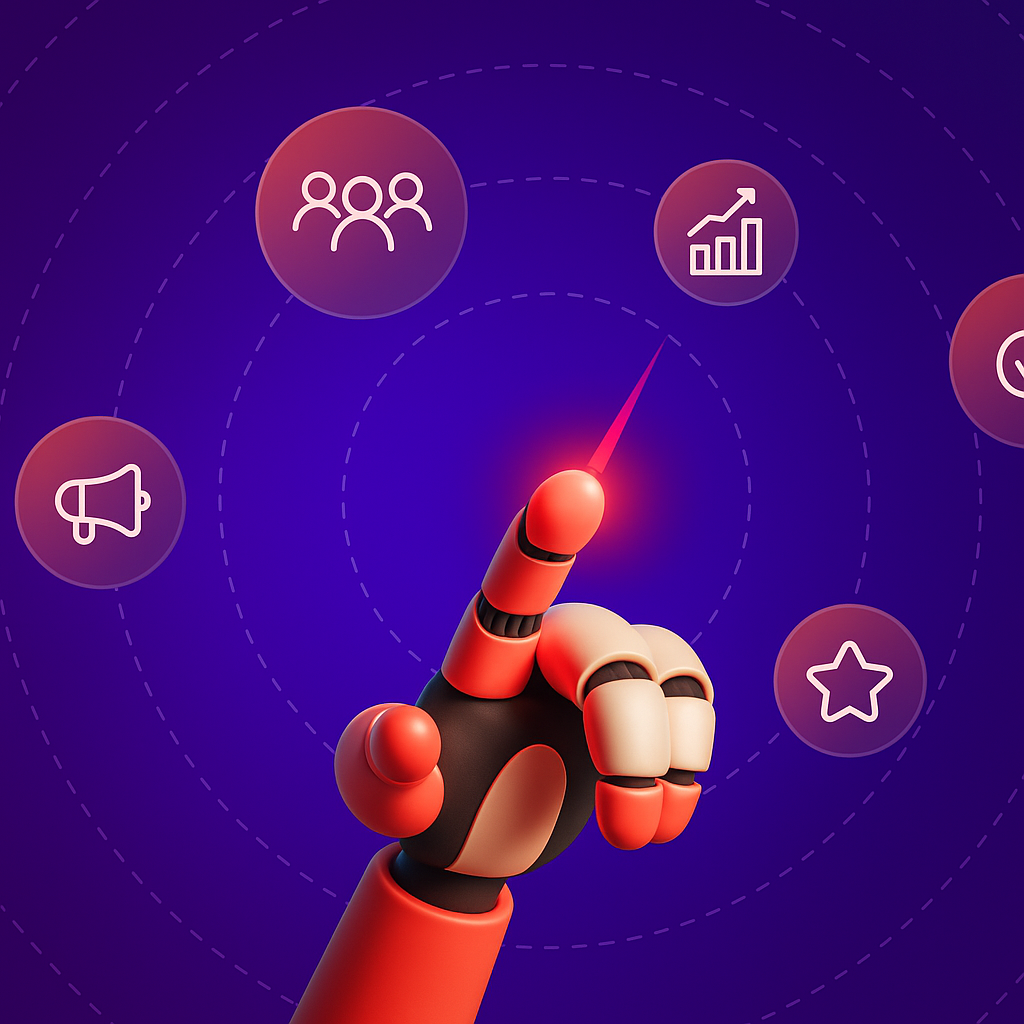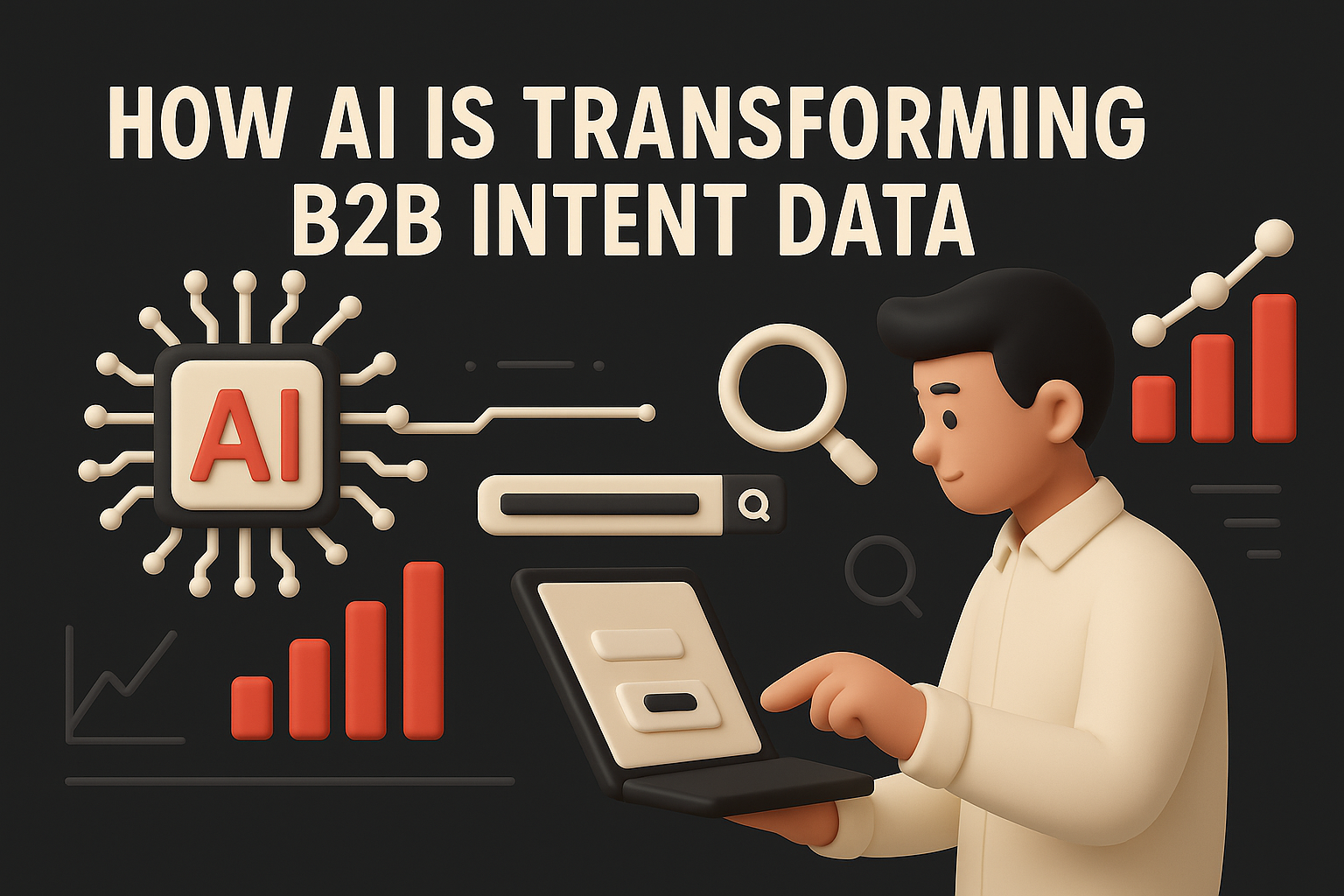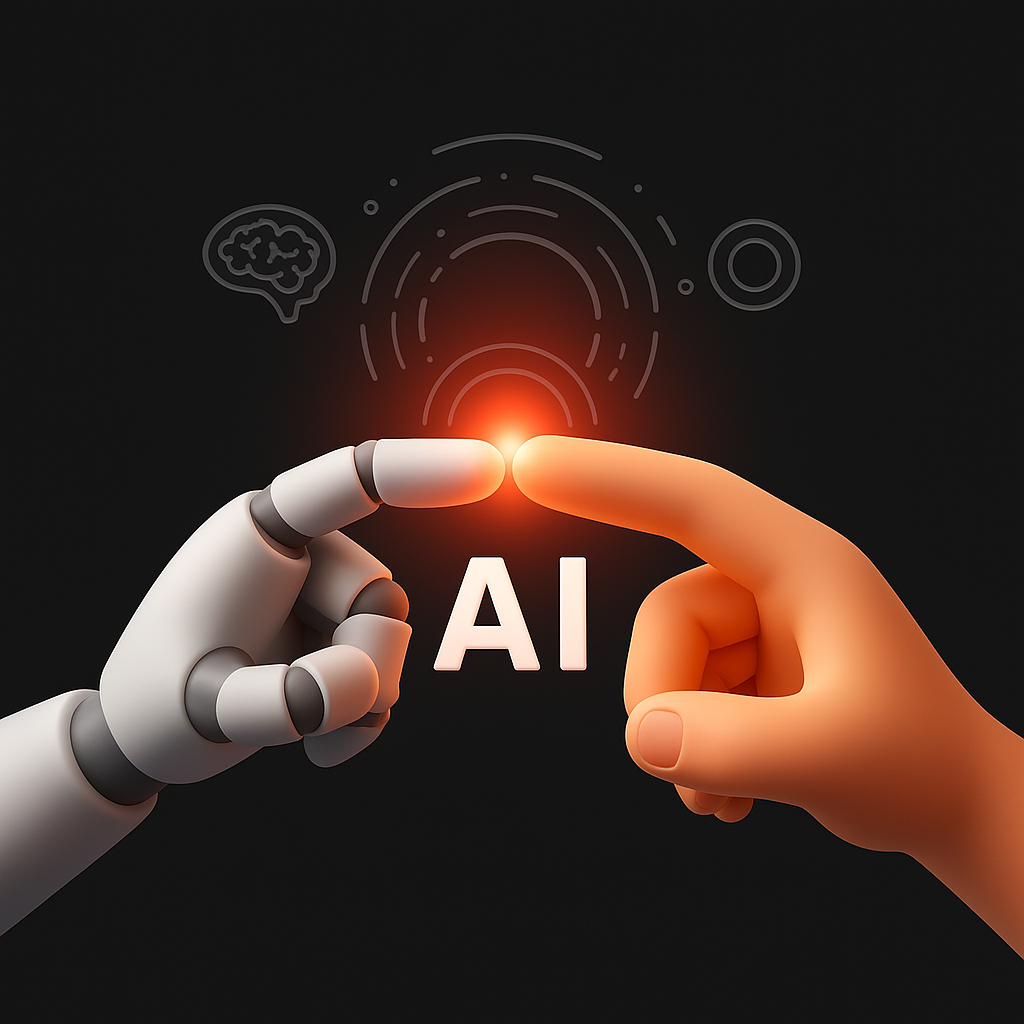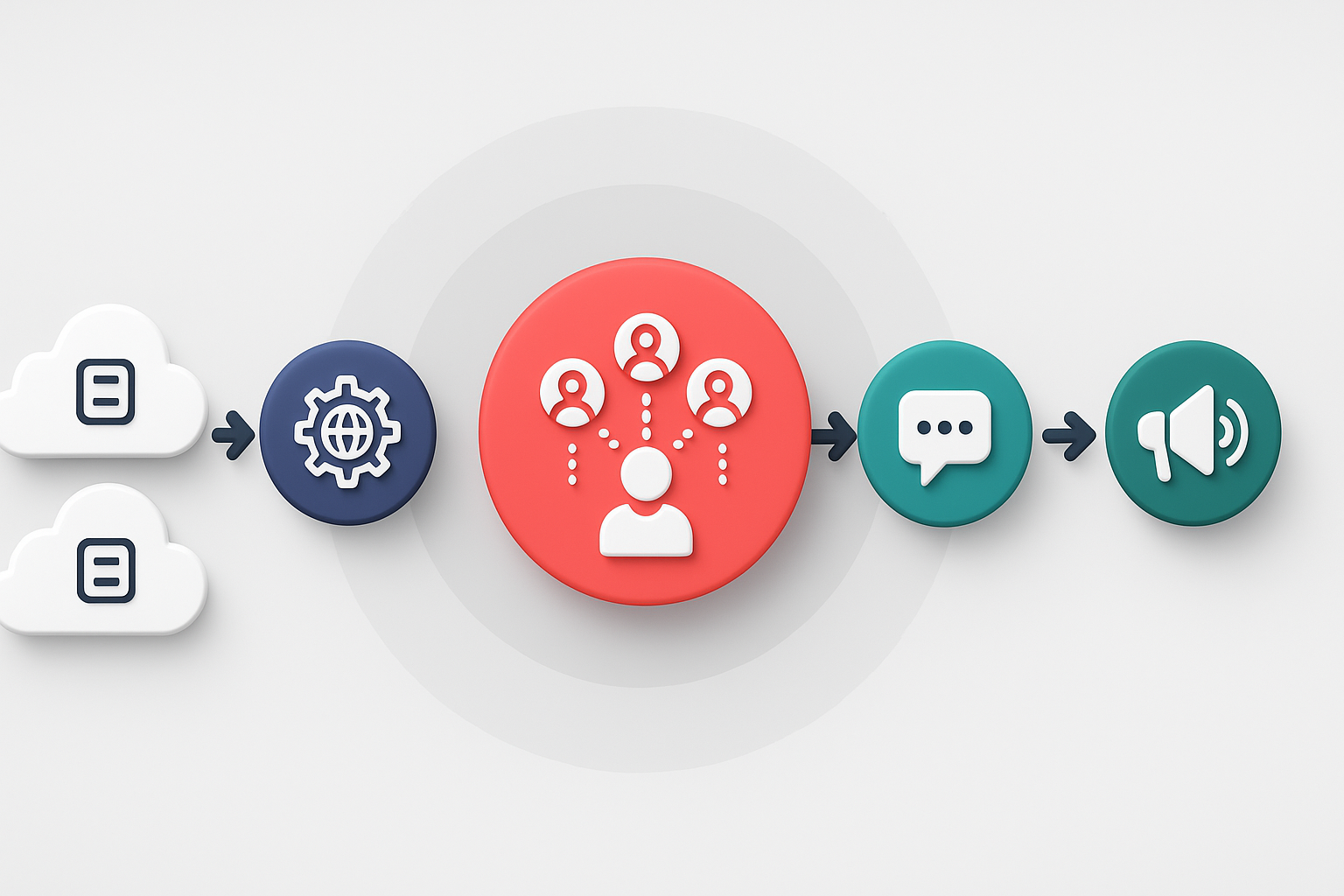B2B Marketing Automation: What It Is in 2025
B2B Marketing Automation: What It Is in 2025 reflects how far digital marketing has evolved in response to complex buyer journeys, data-driven decision-making, and rising expectations for personalization. In 2025, marketing automation is no longer just about sending scheduled emails—it is a strategic system that aligns marketing, sales, and customer experience through intelligent technology.
1. Definition of B2B Marketing Automation in 2025
B2B marketing automation in 2025 refers to the use of AI-powered platforms and integrated tools to manage, personalize, and optimize marketing activities across multiple channels.
It automates repetitive tasks while using real-time data and predictive analytics to deliver relevant content, nurture leads, and support revenue growth throughout the buyer lifecycle.
2. AI-Driven Personalization at Scale
Modern B2B buyers expect tailored experiences.
In 2025, marketing automation platforms leverage artificial intelligence to analyze behavior, intent data, and engagement patterns. This allows marketers to deliver highly personalized messaging across email, websites, social media, and paid channels—without manual effort.
3. Omnichannel Campaign Orchestration
B2B marketing automation is no longer limited to email campaigns.
Today’s platforms coordinate messaging across multiple touchpoints, including websites, webinars, mobile, CRM systems, and sales outreach. This ensures consistent and timely communication at every stage of the buyer journey.
4. Advanced Lead Scoring and Nurturing
In 2025, lead scoring is dynamic and predictive rather than static.
Automation systems continuously update lead scores based on behavior, engagement, and intent signals. This helps sales teams focus on high-quality prospects while marketing automation nurtures leads with relevant content until they are ready to convert.
5. Stronger Sales and Marketing Alignment
B2B marketing automation now plays a central role in aligning marketing and sales teams.
Shared dashboards, real-time alerts, and CRM integration ensure both teams have a unified view of prospects, enabling faster follow-ups and more effective conversations.
6. Data Privacy and Compliance Built In
With stricter data privacy regulations, automation platforms in 2025 are designed with compliance in mind.
Consent management, secure data handling, and transparent data usage are now standard features, helping businesses build trust while maintaining regulatory compliance.
Conclusion
B2B Marketing Automation: What It Is in 2025 represents a shift from task-based automation to intelligent, customer-centric systems. By combining AI, data, and omnichannel execution, marketing automation has become essential for scaling B2B growth, improving efficiency, and delivering meaningful buyer experiences in a competitive digital landscape.
know more.
Hashtags
#B2BMarketing
#MarketingAutomation
#DigitalMarketing2025
#MarTech
#AIinMarketing
B2B Marketing Automation: What It Is in 2025 reflects how far digital marketing has evolved in response to complex buyer journeys, data-driven decision-making, and rising expectations for personalization. In 2025, marketing automation is no longer just about sending scheduled emails—it is a strategic system that aligns marketing, sales, and customer experience through intelligent technology.
1. Definition of B2B Marketing Automation in 2025
B2B marketing automation in 2025 refers to the use of AI-powered platforms and integrated tools to manage, personalize, and optimize marketing activities across multiple channels.
It automates repetitive tasks while using real-time data and predictive analytics to deliver relevant content, nurture leads, and support revenue growth throughout the buyer lifecycle.
2. AI-Driven Personalization at Scale
Modern B2B buyers expect tailored experiences.
In 2025, marketing automation platforms leverage artificial intelligence to analyze behavior, intent data, and engagement patterns. This allows marketers to deliver highly personalized messaging across email, websites, social media, and paid channels—without manual effort.
3. Omnichannel Campaign Orchestration
B2B marketing automation is no longer limited to email campaigns.
Today’s platforms coordinate messaging across multiple touchpoints, including websites, webinars, mobile, CRM systems, and sales outreach. This ensures consistent and timely communication at every stage of the buyer journey.
4. Advanced Lead Scoring and Nurturing
In 2025, lead scoring is dynamic and predictive rather than static.
Automation systems continuously update lead scores based on behavior, engagement, and intent signals. This helps sales teams focus on high-quality prospects while marketing automation nurtures leads with relevant content until they are ready to convert.
5. Stronger Sales and Marketing Alignment
B2B marketing automation now plays a central role in aligning marketing and sales teams.
Shared dashboards, real-time alerts, and CRM integration ensure both teams have a unified view of prospects, enabling faster follow-ups and more effective conversations.
6. Data Privacy and Compliance Built In
With stricter data privacy regulations, automation platforms in 2025 are designed with compliance in mind.
Consent management, secure data handling, and transparent data usage are now standard features, helping businesses build trust while maintaining regulatory compliance.
Conclusion
B2B Marketing Automation: What It Is in 2025 represents a shift from task-based automation to intelligent, customer-centric systems. By combining AI, data, and omnichannel execution, marketing automation has become essential for scaling B2B growth, improving efficiency, and delivering meaningful buyer experiences in a competitive digital landscape.
know more.
Hashtags
#B2BMarketing
#MarketingAutomation
#DigitalMarketing2025
#MarTech
#AIinMarketing
B2B Marketing Automation: What It Is in 2025
B2B Marketing Automation: What It Is in 2025 reflects how far digital marketing has evolved in response to complex buyer journeys, data-driven decision-making, and rising expectations for personalization. In 2025, marketing automation is no longer just about sending scheduled emails—it is a strategic system that aligns marketing, sales, and customer experience through intelligent technology.
1. Definition of B2B Marketing Automation in 2025
B2B marketing automation in 2025 refers to the use of AI-powered platforms and integrated tools to manage, personalize, and optimize marketing activities across multiple channels.
It automates repetitive tasks while using real-time data and predictive analytics to deliver relevant content, nurture leads, and support revenue growth throughout the buyer lifecycle.
2. AI-Driven Personalization at Scale
Modern B2B buyers expect tailored experiences.
In 2025, marketing automation platforms leverage artificial intelligence to analyze behavior, intent data, and engagement patterns. This allows marketers to deliver highly personalized messaging across email, websites, social media, and paid channels—without manual effort.
3. Omnichannel Campaign Orchestration
B2B marketing automation is no longer limited to email campaigns.
Today’s platforms coordinate messaging across multiple touchpoints, including websites, webinars, mobile, CRM systems, and sales outreach. This ensures consistent and timely communication at every stage of the buyer journey.
4. Advanced Lead Scoring and Nurturing
In 2025, lead scoring is dynamic and predictive rather than static.
Automation systems continuously update lead scores based on behavior, engagement, and intent signals. This helps sales teams focus on high-quality prospects while marketing automation nurtures leads with relevant content until they are ready to convert.
5. Stronger Sales and Marketing Alignment
B2B marketing automation now plays a central role in aligning marketing and sales teams.
Shared dashboards, real-time alerts, and CRM integration ensure both teams have a unified view of prospects, enabling faster follow-ups and more effective conversations.
6. Data Privacy and Compliance Built In
With stricter data privacy regulations, automation platforms in 2025 are designed with compliance in mind.
Consent management, secure data handling, and transparent data usage are now standard features, helping businesses build trust while maintaining regulatory compliance.
Conclusion
B2B Marketing Automation: What It Is in 2025 represents a shift from task-based automation to intelligent, customer-centric systems. By combining AI, data, and omnichannel execution, marketing automation has become essential for scaling B2B growth, improving efficiency, and delivering meaningful buyer experiences in a competitive digital landscape.
know more.
Hashtags
#B2BMarketing
#MarketingAutomation
#DigitalMarketing2025
#MarTech
#AIinMarketing
0 Комментарии
0 Поделились




